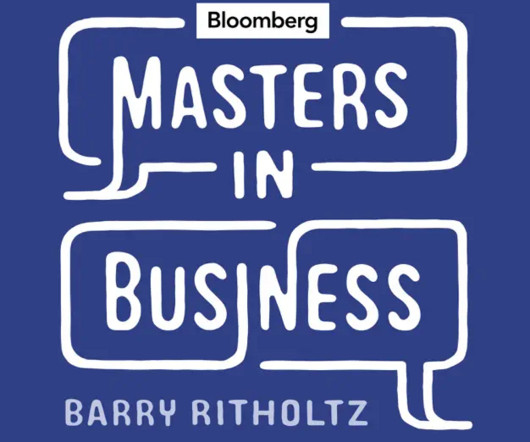Transcript: John Hope Bryant
The Big Picture
MAY 30, 2023
Different risk tolerance and different business plan. BRYANT: So money, unlike math, money is highly emotional. I mean, there’s 50,000 kids in the Atlanta public school system, so you can do the math there. I believe I love math because it doesn’t have an opinion, that’s a Melody Hobson quote.












Let's personalize your content